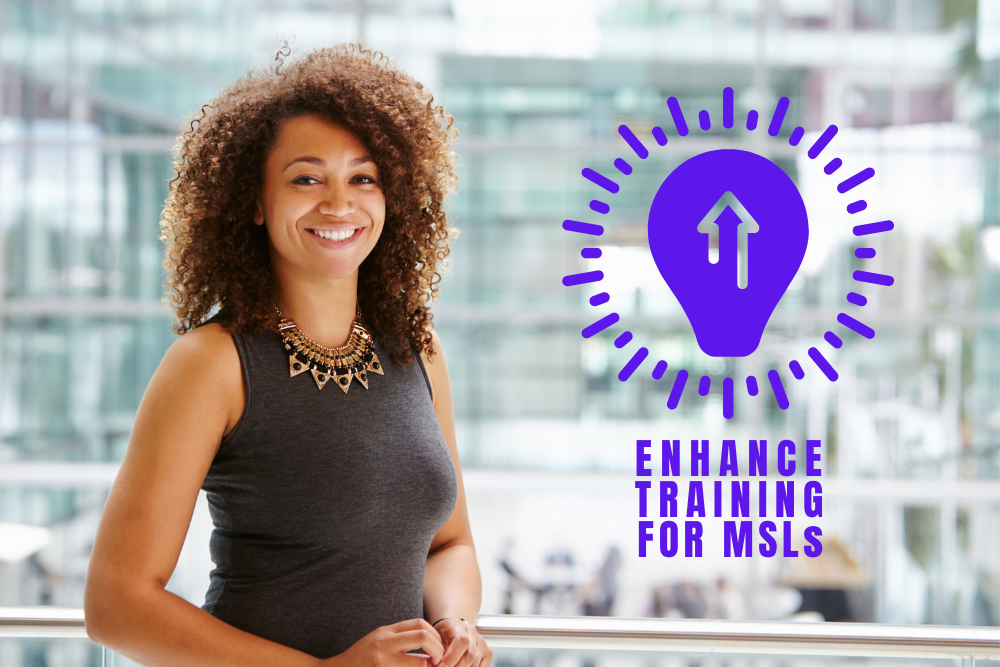In the fast-paced and competitive pharmaceutical industry, Medical Science Liaisons (MSLs) play a crucial role in bridging the gap between pharmaceutical companies and healthcare professionals. They act as scientific experts, conveying complex medical information and fostering strong relationships with key opinion leaders (KOLs) to drive the successful adoption of products. To ensure MSLs are equipped with the knowledge and skills necessary to excel in this role, effective training programs are essential. In this blog, we explore the best pedagogical approaches to maximize retention and empower MSLs to succeed.
1. Interactive Learning Environments
Research suggests that interactive learning environments significantly improve knowledge retention. Incorporating interactive elements such as case studies, role-playing scenarios, and group discussions during MSL training enables learners to engage actively with the content. These approaches provide opportunities for MSLs to apply their knowledge to real-world situations, enhancing their problem-solving abilities and reinforcing key concepts. Moreover, interaction with peers and trainers fosters collaboration and knowledge-sharing, enriching the learning experience.
2. Blended Learning
A combination of traditional classroom training and digital learning, known as blended learning, offers a well-rounded approach. This approach allows MSLs to access self-paced online modules, webinars, and e-learning materials. Blending various mediums accommodates different learning styles and schedules, making it easier for learners to digest information effectively. Additionally, the integration of multimedia elements, such as videos and infographics, aids in conveying complex scientific information in an engaging and easily understandable manner.
3. Experiential Learning
Experiential learning, based on the principles of learning by doing, proves highly effective in the training of MSLs. This pedagogical approach involves hands-on experiences, including attending medical conferences, participating in product demonstrations, and engaging in field visits alongside experienced MSLs. Such experiences provide valuable insights into the actual challenges and scenarios MSLs encounter, making learning more practical and relevant. Encouraging MSLs to apply their knowledge in real-life situations enhances their confidence and competence when engaging with KOLs.
4. Microlearning Modules
In today’s fast-paced world, attention spans are shorter, making microlearning modules particularly useful. These short, focused bursts of learning content provide information in bite-sized chunks that are easy to digest and retain. Mobile-friendly microlearning platforms allow MSLs to access information on-the-go, ensuring continuous learning without disrupting their daily responsibilities. Studies have shown that microlearning can improve information retention and knowledge application due to its concise and targeted nature.
5. Continuous Evaluation and Feedback
Regular evaluation and feedback mechanisms are essential to gauge the effectiveness of training programs and identify areas for improvement. Implementing pre- and post-training assessments can measure knowledge gains and retention levels. Moreover, soliciting feedback from MSLs themselves can provide valuable insights into the training’s strengths and weaknesses. Incorporating these insights into future training iterations ensures continuous improvement and keeps the training relevant and up-to-date.
Effective training for Medical Science Liaisons in the pharmaceutical industry is critical to their success in bridging the gap between pharmaceutical companies and healthcare professionals. The Accreditation Council for Medical Affairs (ACMA) has put together the most useful guide and resource for MSL Teams. This MSL Training Template helps MSL team leader focus on incorporating interactive learning environments, blended learning, experiential learning, microlearning modules, and continuous evaluation and feedback mechanisms are all crucial pedagogical approaches to maximize knowledge retention. By equipping MSLs with the necessary knowledge, skills, and confidence, pharmaceutical companies can enhance the impact of their medical affairs teams, leading to improved relationships with KOLs and increased product adoption.
Resources:
MSL Training Template: https://medicalaffairsspecialist.org/resources/downloads/msl-template
References:
1. Cook DA, Levinson AJ, Garside S, Dupras DM, Erwin PJ, Montori VM. Instructional design variations in internet-based learning for health professions education: a systematic review and meta-analysis. Acad Med. 2010 Oct;85(10):1629-36.
2. Kharb P, Samanta PP, Jindal M, Singh V. Experiential learning: An effective approach for pharmaceutical care education. Indian J Pharmacol. 2016 Nov-Dec;48(6):S18-S22.
3. Murrells T, Bark P, Howard A. The effect of microlearning on the learning process. 2016.
4. Wattanasin N, Lackey-Cornelison W, Karampalis D. The value of experiential learning: Bringing real-life scenarios to the classroom. J Grad Med Educ. 2011 Sep;3(3):424-6.
